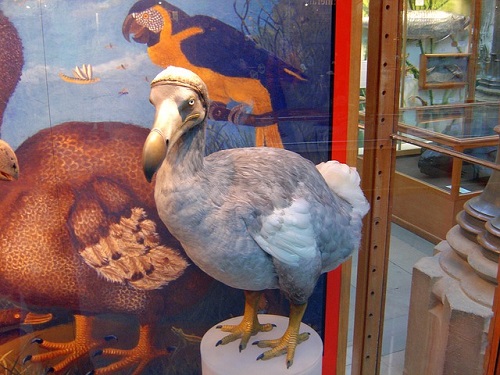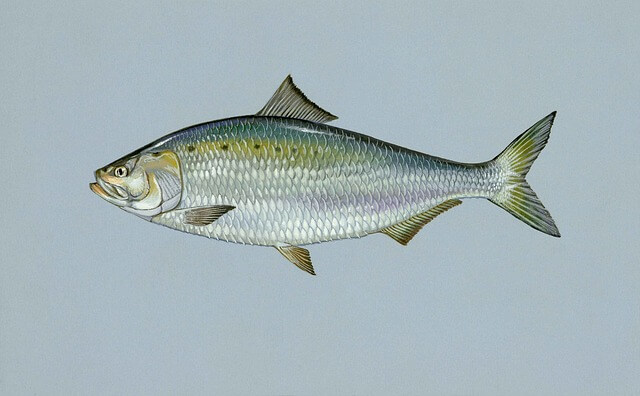You know how there are various sayings and phrases around the world like “fit as a fiddle”, “strong as an ox”, “cute as a button” and “cool as a cucumber”.
Sometimes, it makes sense.
Other times, it doesn’t (is a cucumber “cool” because of its supposed attitude or because it’s been in the fridge?).
The same applies to anything that starts with “deaf as…” and I’ve encountered quite a few of the the common phrases below and their origins too.
Even though the definitions of each phrases are mostly meant to be “unable to hear anything or profoundly deaf”, most of the time, the phrases doesn’t make sense at all.
And FYI, I would avoid using them in real-life and say it to a deaf person. Most, if not all of them, are generally considered to be as an insult.
- Deaf as a Post
- Deaf as a Door Post / Door Knob / Door Nail / Door Mat
- Deaf as a Haddock
- Deaf as a Bat
- Deaf as a Coot
- Deaf as an Adder
- Deaf as a Beetle
- Deaf as a White Cat / Dog
- Deaf as a Dormouse
- Deaf as a Dodo
- Deaf as a Stone / Stone Wall
- Deaf as a Log
- Deaf as a Shad
- Deaf as a Beagle
- Deaf as a [number of things]
1. Deaf as a post
When I first heard of this, I was confused: what “post” are talking about there?
Post box, postman/woman, words with posts in them like postgraduate, postmortem and posters?
I wasn’t sure until I looked into the origin of ‘deaf as a post’, as it seems to be one of the most well-known phrase.
It is not 100% clear where it directly came from but according to my research, it is said that it the word “post” of whatever kind (fence, gate, bed, etc) has long been used to highlight deafness and unresponsiveness, perhaps at the same time.
So deaf people are apparently unresponsive.
Hmmm.
The phrase ‘like Posts can neither speake nor goe’ was used in Richard Braitwhaite’s Solemne and Joviall Disputation in 1617. It’s easy to see how that is related to deafness.
It is also believed that “as stupid as a post” was used often in the 17th Century too, and it was easy to replace the word ‘stupid’ with ‘deaf’.
So you can see how ‘deaf as a post’ has a bit of an unpleasant historical.
2. Deaf as a door post / door knob / door nail / door mat
The phrases ‘deaf as a door post’, ‘deaf as a door knob’ and ‘deaf as a door nail’ have similar connections but not necessarily linked to deafness.
When doing my research, it seems that it may have been a typo that Google is picking up because in this context, the word ‘deaf’ is supposed to be replaced with ‘deaf’.

If you have a look at your keyboard, you can see that the letters ‘f’ and ‘d’ are right beside each other. So it is possible that the typo happens because of pressing ‘f’ in deaf instead of ‘d’ in dead.
So it’s supposed to ‘dead as a door post/knob/nail/mat’, though why they have to be door-related items is beyond me.
The poor doors.
3. Deaf as a haddock
This one is bizarre! Are haddock deaf?
There is even a New York Times article from 1901 where it discusses that very topic, but I couldn’t see any evidence that they are deaf.

When doing my research on the origin of ‘deaf as a haddock’, I managed to find a few forums and blog posts where it casually references it, as if it’s normal expression.
And on one case, “deaf as a haddie” too.
But I didn’t know about it until now, and I have no idea of its origin. So if you happen to know, let me know in the comment at the end of this post.
4. Deaf as a bat
This really confused me, but then it hit me.
Just like how I get some ridiculous comments like “do I read Braille” and “can I drive”, this is perhaps another one that I could add to the list (assuming that people do say it, because I’ve never heard it).
You may have heard of the phrase “blind as a bat”. So my only guess is that someone out there assumed that you can replace ‘blind’ with ‘deaf’.
🙄
Which is crazy because it’s general knowledge that bats use their amazing hearing to hear sonar sounds bounce off the wall so that they can find their way around.
5. Deaf as a coot
I’ll put my hand up and say that I’ve never heard of the word ‘coot’. Apparently, it’s an aquatic bird

But on my way to find out the origin of ‘deaf as a coot’ I realised that it’s yet another mistake.
Apparently, ‘bald as a coot’ is a common phrase. It’s not because they are bald or featherless but there are two reasons: 1) because of their white marketing on their heads that resembles baldness, and 2) bald has several meanings, and one of them is ‘streaked or marked in white’.
So there you go, you’ve possibly learnt something new there. But what does that have to do with coots being deaf?
Nothing.
6. Deaf as an adder
I was worried that this one was going to be another fake phrases, but surprisingly, this one does exist and has a number of historical links.
Looking into the origins of ‘deaf as an adder’, there is a biblical link to it as it located in the Book of Psalm 58:4.
In King James 1611 version, it states:
4 Their poison is like the poyson of a serpent; they are like the deafe adder that stoppeth her eare;
5 Which will not hearken to the voice of charmers, charming neuer so wisely.
King James version of the Book of Psalm (1611)
If that didn’t make sense, in the New International Version (2011), it states:
4 Their venom is like the venom of a snake, like that of a cobra that has stopped its ears,
5 that will not heed the tune of the charmer, however skilful the enchanger may be
International version of the Book of Psalm (2011)
And we don’t stop there, as ‘deaf as an adder’ was recorded in several other performances and publications:
When the Sessions come, they shall heare from me. In the meane time, to all suites, to all intreaties, to all trickes, I will be as deafe as an Adder, and blind as a Beetle, lay mine eare to the ground, and lock mine eyes i’my hand, against all temptations.
Edward Hoe (London, 1605), a comedy by English poets and playrights George Chapman, Ben Jonson and John Marston.
According to the tradition, the asp stops its ears when the charmer utters his incantation, by applying one ear to the ground and twisting its tail into the other.
English clergyman and schoolmaster Ebenezer Cobham Brewer (1810-1897)
And, anyway, no matter how much you may behave like the deaf adder of Scripture which, as you are doubless aware, the more one piped, the less it danced, or words to that effect, I shall carry on as planned.
English author Pelham Grenville Wodehouse’s (1881-1975) in Right Ho, Jeeves (1934)
…and I began to understand how these brids in Holy Writ must have felt after their session with the deaf adder.
English author Pelham Grenville Wodehouse’s (1881-1975) in Jeeves and the Feudal Spirit (1954)
Out of curiousity, I checked whether adders are deaf but from reading more about it, no snakes can truly hear as they don’t have external ears.
Instead, they have internal ears connected to their jawbones and they used that pick up vibrations of preys and predators, as the jawbones transfer the feeling to the ear so that they can “hear” if anything is approaching.
And because the early European settles of Australia assumed that adders are deaf, it later morphed into “death adder” as they were mistaken that they couldn’t hear.
And all of that snake-charmer trick is a myth as it’s mainly done because of the movement of the charmers’ flutes rather than the sound that it makes.
But there are claims that there is a reference to a charmer who was brought into a house to make snakes leave, but instead, it turns one ear to the ground and stops the other with its tail.
Just like some of the quotes mentioned by the playwrights above.
See, you can’t say that you haven’t learnt anything new from reading this post.
7. Deaf as a beetle
Originally, I wasn’t going to go into too much details about this. If you have read the previous section, it mentions ‘blind as a beetle’.
So immediately, I thought it’s yet another assumeption. But I did my research on the origins of ‘deaf as a beetle’.
Even though beetles are generally labelled as being deaf, it’s unjustified as there are 100,000s of species and millions more undocumented. But horned beetles are few that possess hearing organs.
They possess a pair of thin membranes, which are located in their abdomen overlying an air-fielled pocket, which contains neuro-sensory receptors that converts sound-waves into electrical pulses.
When beetles are resting, their hard out wings over their abdomen and decreases their hearing sensitivity. When airborne, it is exposed to maximum to maximum hearing sensitivity.
Which is probably why you won’t get much of a reaction if you yell at it (why would you do that anyway).
And beetles have even evolved detect the sonar-like sounds that bat uses to hunt at night.
Looking into it more deeper, there appears to be hunting phraseology according to an article in the European Journal of Science and Theology that links to this idiom.
For instance, among hunters, there appeared a familiar slangy evaluation of a person, who lost his hearing, as well as the absent-minded, featherheaded man – deaf as a beetle – the expression, based on rethinking of the blackcock ‘s property to lose hearing for the estrus period.
Ivan Alekseevich Podyukov, European Journey of Science and Theology, 2014
Another unofficial origin of ‘deaf as a beetle’ is not the insect, rather a large mallet which are used to level paving-stones or place in fence posts.
Whether it’s a coincidence that it can be used on fence posts (see ‘deaf as a post’) is another story.
8. Deaf as a white dog/cat
Sorry cat lovers, but apparently, there is a reference that white cats are both stupid and deaf.
But that’s obviously very harsh, especially as there’s more to that story than meets the eye.
Long story short; certain types of white dogs and cats are at risk of being completely deaf because of:
- lack of pigment in the inner ear of the dogs
- degeneration of auditory apparatus of the inner ear in cats

Of coure, other coloured dogs and cats can be affected but there seems to be a history of inherited deafness in certain white cats and dogs.
9. Deaf as a dormouse
This one threw me off a little bit, as I was originally thinking of “quiet as a mouse” or “quiet as a dormouse”; both of which are popular idioms.
They are certainly quiet (I’m just assuming that), but are they deaf?

I couldn’t find any evidence of that, nor could I find the origin of ‘deaf as a dormouse’.
If you happen to know the story around this, do comment at the end of the post.
10. Deaf as a dodo
I thought this is another classic example of a typo where its meant to be “dead as a dodo” instead, which makes a little bit more sense as they don’t exist.
But it does seem to be used by various people on their personal blogs. I’ve even spotted “deaf to reality like a dodo”. Whether that’s the intention of this particular idiom is uncertain.

It is also believed that ‘dodo’ in ASL is a slang for “what are you doing?” or “what you are up to?”.
Since I’m learning BSL, I have no idea if that’s the case as I’m basing that in the image below, so let me know in the comment at the end of this post.
I had to do a lot of research about dodo and to learn more about how deaf dodo adapts to a hearing world.
Except, it doesn’t because it can hear fine.
So to round up, I have no idea what is the origin of ‘deaf as a dodo’. Let me know if you do.
11. Deaf as a stone
There isn’t a clear link to history but you may have heard of words that are linking stone with an adjective’.
Some of you might be thinking of the wrestler ‘Stone Cold Steve Austin’…
But I’m actually referring to ‘stone cold or ‘stone dead’ to illustrate rigor mortis.
In this case though, ‘stone deaf’ has been used in some context, and it is believed that the origin of ‘deaf as a stone’ comes from there.
12. Deaf as a log
Are logs deaf?
You kidding me? I shouldn’t be asking that question? I’ve heard of ‘slept like a log’, but I didn’t know log can sleep.
But I looked around for its origin, and the only thing I could find is a reference to a poetry called ‘Deaf as a Log’ by Mariana Dan; an author of 12 books including 3 collections of poetry.
As far as I’m aware, that’s the only link I can see to this idiom.
13. Deaf as a shad
I know what you are thinking; what is a shad?
A shad is a fish from the herring family that is naturally distributed across the North American coast of the North Atlantic.

So what does that have to do with ‘deaf as a shad?’
At first, I thought it’s linked to our earlier ‘deaf as a mackerel’ idiom, but it seems that it’s not.
The main reference is that it came from the 1871 novel ‘The Clockmaker, Or, The Sayings and Doings of Samuel Slick, of Slicksbille’ by English politication, judge and author Thomas Chandler Haliburton.

In his book, he wrote:
…it’s Slick – Sam Slick is my name ! a-raising’ of my voice till the buildin’ actilly gave an echo agin, for the crittur was as deaf as a shad.
The Clockmaker by Thomas Chandler Haliburton (1871)
Why the author chose a shad as a reference point is uncertain.
14. Deaf as a beagle
Like the shad reference, the origin of ‘deaf as a beagle’ is also from the 1956 book of ‘Eye Against Eye’ by Forrest Gander.
Walking the dog and stepping on a patch of repaired road, I remember the soft spot in his head.
You’re deaf as a beagle. No, you are.
Eye Against Eye, by Forrest Gander (1956)
That was the last page of the book, so I don’t know what’s the context of this idiom, but it doesn’t appear to be widely used outside of the book.
15. Deaf as a [number of things]
That’s right, a number of things, and they are as follows:
Deaf as a posh
Deaf as a house
Deaf as bricks
Deaf as a nut
Deaf as a nut – that you cannot hammer a meanting into
Deaf as the ducks
Deaf as any Frenchman appears
Deaf as yourself to a whistle
Deaf as any tradesman’s dummy
Deaf as Pharaoh’s mother’s mother’s mummy
Deaf as dogs’-ears to Enfield’s Speaker
Deaf as Gog and Magog
Deaf as the still-born figures of Madame Tussaud
Thomas Hood – Complete Poetrical Works from the early edition of ‘Whims & Oddities’ (1825)
Yikes! Who would say all of that?
Well that was Thomas Hood, where he was describing an elderly person all of the above (including ‘post’, ‘adder’, ‘nail’ and ‘stone’) in his ‘Whims & Oddities’ in 1825.

And in just a few pages too.
What a delightful chap!
Even though some of these idioms are common, as a general rule of thumb, I would avoid using them they would generally be considered offensive.
It’s not so much about about calling someone a bat or beetle or doorknob that is considered to be offensive, but the fact that a person’s proud deaf identity is being used in a negative way.
But I believe it’s important to learn the history of these idioms, understand more about the Deaf history and to educate people more about deaf awareness.
If you do happen to know more about these phrases and its origins, or perhaps I have missed a few out, do comment below as I’d love to hear them.
And I may add more to the list if I missed out on any.
- What is ‘audism’? Plus my personal experiences of facing audism - October 27, 2021
- ‘CODA’ movie review: my thoughts on the latest deaf movie to be released - October 13, 2021
- Deafness as a ‘hidden/invisible disability’ - October 6, 2021
The term, “Deaf as a Haddock” refers to the state of the fish where 99% of people see them, on ice at the fish market staring up with one expressionless eye and quite deaf.
Aaahhh, I see. That’s very interesting. Thanks for sharing that.
I believe the term “deaf as a haddock ” comes from Newfoundland.
That’s news to me 🤷🏽♂️
“Coot” can also mean old man. Example: You old coot. So the saying: ” Deaf as a coot”, may be what it is referring. Most old men are hard of hearing, I should know, I’m an old coot.
Hmm, I didn’t know that (about the defintion of “coot”, not that you are a coot 😬)